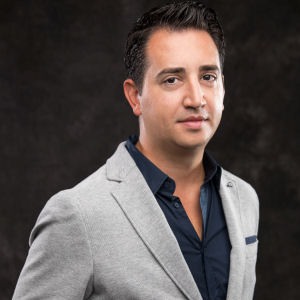October 27, 2018 | 7:00pm ET
BY DAVID PAGNOTTA, The Fourth Period
NHL, NHLPA BEGIN PRELIMINARY CBA TALKS
TORONTO, ON -- The month of October may be coming to a close, but it’s sure to go down as one of the more active opening months of the season in recent memory.
Before the regular-season even got underway, the NHL made headlines after the League’s Executive Committee unanimously recommended to its Board of Governors to expand to Seattle. That should get full approval in early-December when the Board meets Dec. 3-4 in Georgia (of all places).
Auston Matthews, John Tavares and Morgan Rielly stole the show to kick-off the 2018-19 campaign with their offensive performances. Nathan MacKinnon, Mikko Rantanen and Gabe Landeskog pulled a “hold my beer” on Toronto’s weapons. Carolina, Montreal, Chicago and Vancouver are off to surprisingly strong starts. St. Louis, Los Angeles and Florida are off to surprisingly crappy starts. The Tom Wilson suspension thing. Sidney Crosby’s unreal goal (his “hold my beer” moment). Torts being Torts. The NHL’s new deal with a sports book based in Vegas (announcement coming Monday). It’s been quite the month.
And behind all of the hoopla have been some fairly interesting developments.
According to multiple sources with knowledge of the situation, the NHL and NHLPA have started extremely preliminary talks on the next Collective Bargaining Agreement by going over details of the current one.
Now, let’s not get all crazy. As I said, there are very, very early discussions and as history has shown, the next CBA won’t get ironed out until the bitter end – and who knows when that ‘end’ will be – but it’s a positive sign in a very negative environment, per history.
“Talking bigger picture and longer term is always positive, but I wouldn’t even say we have really begun that process yet in any meaningful way,” NHL Deputy Commissioner Bill Daly said via email.
NHLPA Spokesperson Jonathan Weatherdon also confirmed the early talks when reached Saturday.
“The NHLPA and NHL have had some brief preliminary discussions regarding the current CBA. We are meeting with players over the first part of the season to discuss current issues and concerns, in anticipation of the re-opener decision in less than a year.” Weatherdon said.
There’s a crapload of work to be done before we reach a new CBA in the NHL. For the most part, the owners are happy with how the current CBA has worked out – and adding $500 million in expansion fee dollars from Vegas and another $650 million from Seattle (soon) gives them another reason to smile. Now, the League can argue their franchises are worth a minimum $650M.
The owners want to keep smiling, and the players certainly don’t want to lose out on expected/potential earnings
“We are very positive-thinking and believe early talks are that,” said one League executive speaking on the basis of anonymity. “The League, owners and players all realize how much it set us back last lockout and do believe all players, owners and the League will do everything in their power to prevent (a work stoppage).
“There will have to be concessions on both sides, and both sides realize that.”
Remember, two years ago, the NHL offered to extend the CBA by three-years in exchange for allowing the players to participate in the 2018 Winter Olympics. The NHLPA didn’t take very long to reject the offer, primarily because they didn’t feel they had enough time to collect all the necessary information they required to make a proper decision.
For the most part, the current CBA isn’t horrible, but there are a number of significant changes, and potential additions, that are going to be made whenever the dust settles.
Yes, participating in the Olympics will be one topic. Many believe the NHL isn’t going to fight too hard to sign off on this– they are fairly invested in the China market and the main sponsors behind the NHL games over there are likely going to assist in making the players (and League) as comfortable as everyone needs to be in 2022 – and the World Cup of Hockey will help eliminate any mid-season financial concerns from the owners side of things.
The WCH will also be a topic point, as players had concerns over the compensation they received, the timing in which they received it, and such items as travel, down-time and the Fan Village in 2016. Right now, Edmonton is still believed to be the leading candidate to host the tournament in 2020.
And you can be sure the League’s next U.S. television deal will be brought up, as well. It’s my understanding the NHL is considering national deals with multiple networks moving forward, giving a network like ESPN, for example, the opportunity to air a “Game of the Week,” while NBC/NBCSN remains a primary rightsholder. ESPN, if you recall, was the U.S. broadcast partner for the World Cup.
There also continues to be whispers of such a system being implemented in Canada, should Bell (TSN and RDS) have a desire to re-enter the equation – which I can see happening if Rogers (Sportsnet) and TVA are willing to sell off some playoff games.
The salary cap will be a main topic of discussion, along with the possible implementation of a luxury tax and/or a franchise player tag, something I’m personally more in favour of. There will also be discussions on shortening a player’s max term from eight years to as low as five years (I believe it will ultimately fall somewhere in between) and putting some type of cap on player signing bonuses.
Adding a luxury tax goes against what NHL Commissioner Gary Bettman has stood strongly for for so long, but the cap floor allows every team to be competitive and force clubs to spend in order to do so. Competitive balance, and all. A 10 percent luxury tax, for example, gives teams with bigger pockets an edge, certainly, but the penalties paid for going over the salary cap get pooled and split amongst cap-compliant teams. In theory, that should please and help the cap-compliant clubs and those dollars could be used against Hockey Related Revenues to offset the biggest issue for the NHLPA, escrow.
I don’t believe the League has an appetite for a luxury tax, so it will be interesting to see how long that remains part of the discussions.
Something I’d like to see take form is the addition of a franchise player tag, where teams will have the option to tag one player a ‘franchise player,’ upon which their salary, or a portion of it, does not count against their team’s cap (if a ‘franchise player’ is traded to a team that already has an FP, the acquired player’s cap hit would then count against his new team’s cap).
The League may have more of a stomach for this than the luxury tax. Not every team needs to assign a ‘franchise player,’ should they decide against it in any given season. Having a ‘franchise player’ gives teams the ability/option to tag their top player at the start of every season and have those dollars free from the salary cap, perhaps eliminating the need for a luxury tax – however with no luxury tax comes no penalty fees, which would, in theory, be split amongst cap-compliant teams and go against the League’s portion of HRR.
The hill the Players are willing to die on will focus on lowering and/or capping escrow. This can complicate matters as the basis of the current CBA is having a 50/50 split on revenues between the owners and players. I’m not about to dive head first into this topic, as this column is meant to give you an idea on some of the major points of discussion, but capping escrow means the 50/50 split becomes a rotating split – and that’s where the luxury tax, or franchise player tag, could assist.
My understanding is the League might be willing to move towards a scaled revenue share model. If revenues go up, the salary cap goes up, and as a result, escrow should go down. The owners might concede to this model if the players accept a shorter max-term on contracts and setting a cap on annual bonuses dished out in a contract.
This is all food for thought, mind you, and a hell of a lot easier to talk about then negotiate, but given how past CBA negotiations have gone, and how both sides appear joint in their desire to avoid any form of a work stoppage, I’m going to attempt to be as positive as I can and believe these extremely early discussions are an enormously tiny step in the right direction.
CANES REALLY WANT NYLANDER
The Carolina Hurricanes have may is fairly clear to the Toronto Maple Leafs that they want to get their mitts on restricted free agent right wing William Nylander. And while the Leafs have been fairly reluctant to deal him, I’m told talks have recently picked up.
It’s unclear what the Maple Leafs are asking for – many believe the return will have to include one of defencemen Brett Pesce or Justin Faulk – or if a deal is truly imminent, but it certainly sounds like the two teams have escalated discussions.
Nylander’s camp is believed to be looking for a deal worth in between $6 million and $8 million per season on a long-term contract, depending on the overall length of the contract, and the Hurricanes appear comfortable enough with Nylander’s speculated asking price to continue a dialogue with Toronto.
Of course, it’s entirely possible the Leafs and Nylanders’ camp come to terms on an extension, but Toronto is starting to consider alternative options.
As the more these two teams send representatives to each other’s games, the more people will talk about it – Leafs GM Kyle Dubas was in Raleigh two nights ago, and Hurricanes Senior VP of Hockey Operations Rick Dudley and pro scout Mark Craig are expected to take in Saturday night’s game in Toronto against the Winnipeg Jets.
ACTIVE LOU ISLAND
Lou Lamoriello and the New York Islanders should be fairly busy as the season progresses. With Brock Nelson, Anders Lee and Jordan Eberle all set to become unrestricted free agents next July, I suspect only one will return.
The Islanders and Lee’s agent had discussed a long-term extension earlier this month – I believe both a seven-year and eight-year deal were considered – but Lamoriello has tabled talks until later in the season.
My educated guess on the pause in negotiations revolves around the dollars. Lee’s next contract will be determined based on his production this season – if he lights the lamp 30+ times, I can see his next salary sitting around $6 million to $7 million per season.
As for Nelson and Eberle, neither player has had any meaningful contract talks and I don’t expect that to take place until January, at the earliest (or at all). Depending on how they perform and how the team performs, overall, both Eberle and Nelson could see themselves swapped out closer to the trade deadline.
Another Islander who could be on the move later this season is defenceman Nick Leddy, who has three-years left on his seven-year contract after this season.
Leddy, 27, was the topic of discussion with a few teams last season and again this summer when Lamoriello took the controls. My sense is the Islanders are open to dealing him, if the right offer presents itself, of course, though if any deal goes down, I suspect it’ll occur much later in the season.
David Pagnotta is the Editor-in-Chief of The Fourth Period.
Follow him on Twitter and Instagram.
Past Columns:
Jul. 02, 2018 - As UFA market dwindles, trade talk takes over
Jun. 28, 2018 - Senators receive off for franchise



